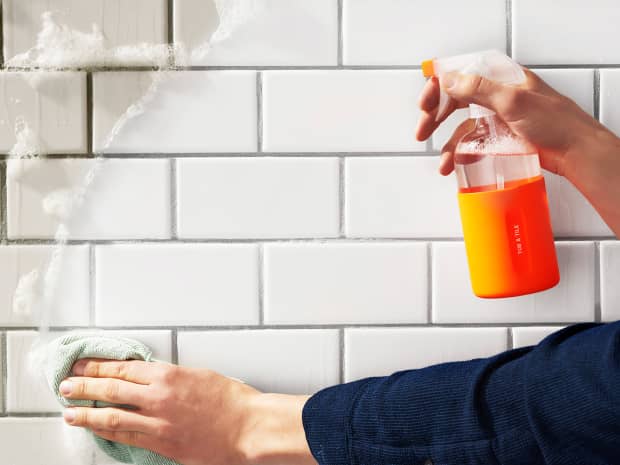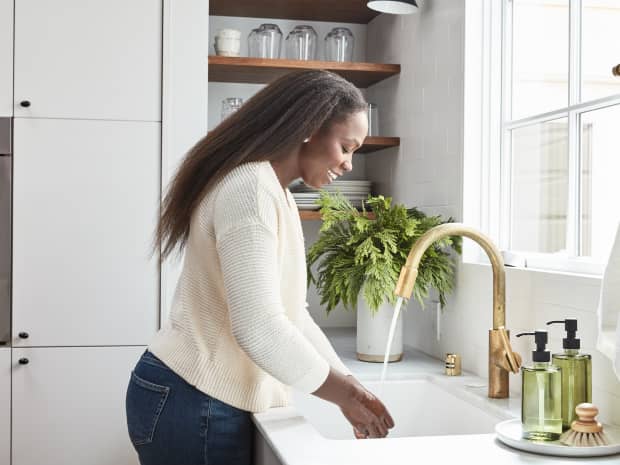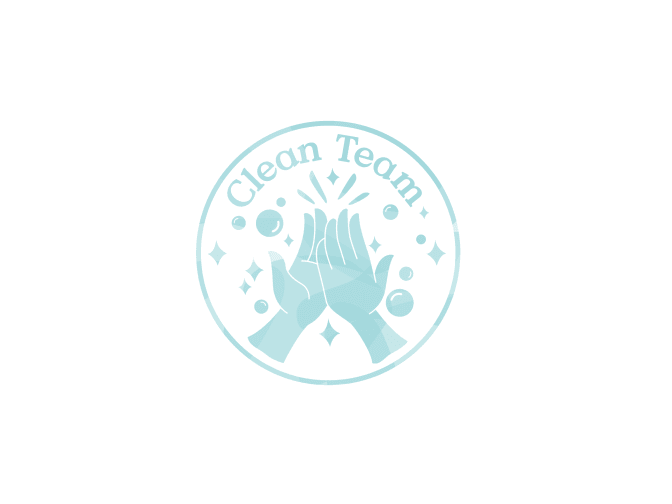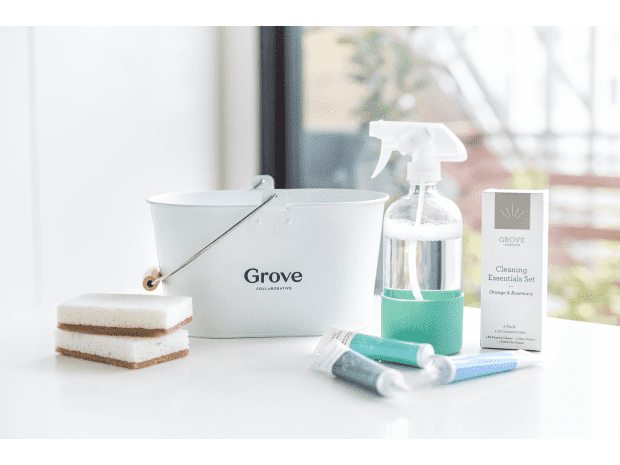
11 best bathtub and shower tile cleaners.
We've pulled the top 11 best shower cleaners that have been top-rated by Grove members.
Read More


Last Updated: May 6, 2022
Porcelain is sturdy, elegant — and prone to blemishes and grime. Have no fear, we’re here to impart a few choice strategies that’ll have your porcelain sinks gleaming and bright with natural products you’ve already got on hand.
Porcelain sinks have a timeless look that goes with everything from minimalist decor to country rustic to the thrift store finds and hand-me-downs you had in your first apartment. But the truth of the matter is that they’re notoriously easy to stain, scratch, and cover with grime — ick. No thank you!
We’ve got tips and tricks to save the day or — at the very least — save your sinks from their dingy fate. Keep reading for some of our favorite natural methods to banish blemishes and make your porcelain shine brighter than ever.

Porcelain sinks are made from super durable, non-porous clay that’s made to withstand extremely high temperatures. Some sinks are made from solid porcelain but oftentimes, porcelain sinks are made from iron, steel, or other materials that have a porcelain coating.
Ceramic sinks are very similar to porcelain, and the terms are often used interchangeably. Generally, porcelain has a softer appearance than ceramic, however porcelain is considered to be stronger than ceramic and therefore a better material for sinks and other appliances.

Porcelain sinks require regular maintenance to keep stains from forming. In an ideal world, you’d clean your sink daily with a microfiber cloth and natural dish soap to prevent stains and grime from sticking in the first place. But let’s be realistic — most of us aren’t going to wipe down our sinks everyday.
To keep your porcelain in excellent condition, clean it weekly to prevent the buildup of grease, dirt, and soap scum. At least once a month, give your porcelain sinks a good deep-cleaning to maintain their beauty.
Overall, porcelain is a strong material that’s pretty low-maintenance. That being said, it’s also a brittle material that has a tendency to scratch. Here are a few products and tools you should avoid if you want to keep your sink looking its best.
Chlorine bleach: Chlorine bleach can permanently damage the finish on antique and colored porcelain, or if its left on any type of porcelain sink for too long.
Abrasive tools: Abrasive tools like scouring pads and steel wool could cause unsightly scratches to form on porcelain sinks.
Abrasive cleaners: Abrasive cleaners that contain harsh chemicals can stain, scratch, or damage the finish on porcelain sinks.
Use this method daily or weekly to keep your sink nice ‘n’ clean.
Step 1: Wet your microfiber cloth or sponge with hot water and a few squirts of dish soap.
Step 2: Wipe down the sink and apply a lil’ elbow grease to any spots that are extra dirty.
Step 3: Rinse away the soap and grime, et voila! Your sink is sparkling clean and ready to be used again.
Use this method monthly or to get rid of stubborn stains, gnarly grime, and rust spots.
Step 1: Get your sponge or microfiber cloth wet then sprinkle the sink with baking soda.
Step 2: Scrub the baking soda into the sink in circular motions. Pour a small amount of hydrogen peroxide onto the sponge or cloth and continue scrubbing.
Step 3: Rinse the sink thoroughly so that no baking soda or hydrogen peroxide remain then relish in your stain-free sink!

Ready to tackle the dirtiest spots in your home? Grove Collaborative has you covered with Clean Team. Each week, we’ll do a deep dive into how to clean a different place or item in your home. No spot is too small — and we’ll tell you how to conquer them all, naturally.

We've pulled the top 11 best shower cleaners that have been top-rated by Grove members.

Here's the 6 best cleaning products with peppermint as top-rated by Grove members.

We've pulled the top 30 household cleaning products as determined by Grove members.

Check out the 7 best Grove Co. Tree-Free bamboo products according to Grove members.